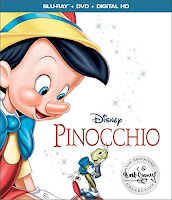the traveler's resource guide to festivals & films
a FestivalTravelNetwork.com site
part of Insider Media llc.
Film and the Arts
February '17 Digital Week I
- Details
- Parent Category: Film and the Arts
- Category: Reviews
- Published on Tuesday, 07 February 2017 15:53
- Written by Kevin Filipski
Zvia, a young Orthodox Jewish wife, discovers what’s beyond her own isolated married existence one night in a cemetery in Jerusalem’s Mount of Olives, where she witnesses a prostitute servicing a john; her curiosity leads her to make new—and quite unlikely—relationships.
Writer-director Yaelle Kayam’s impressive degree of insight and control ensure that her story never comes close to descending into exploitiveness: helping greatly is a strong, subtle performance by Israeli actress Shani Klein as Zvia.
Off-Broadway Review—David Ives's “The Liar"
- Details
- Parent Category: Film and the Arts
- Category: Reviews
- Published on Friday, 03 February 2017 18:26
- Written by Kevin Filipski
 |
| Ismenia Mendes and Amelia Pedlow in The Liar (photo: Richard Termine) |
Philip Glass Tribute & African Legends at Carnegie Hall
- Details
- Parent Category: Film and the Arts
- Category: Reviews
- Published on Wednesday, 01 February 2017 14:37
- Written by Jack Angstreich

Dennis Russell Davies, Philip Glass, and Angelique Kidjo
On the evening of Tuesday, January 31st, at Carnegie Hall, the superb musicians of the Bruckner Orchester Linz gave a wonderful concert of new works by Philip Glass in celebration of his eightieth birthday. Glass, who was in the audience, is one of the finest living composers and the ensemble was beautifully led by one of his greatest champions, the conductor Dennis Russell Davies.
The program opened with what seemed to be its strongest work, the New York premiere of the gorgeous Days and Nights in Rocinha, a hypnotic, Brazilian-inflected theme and variations written in homage to a neighborhood in Rio de Janeiro.
The enormously appealing African world music star, Angélique Kidjo, then took the stage to perform the New York premiere of the enjoyable Ifè: Three Yorùbá Songs which was written expressly for her. The poems which are the basis of the piece record legends of Ifè, which Kidjo described as "the place where the Yorùbá people think the world was created." Despite many signature elements of the composer, this work had an unusual, unexpected sound. Kidjo received an enthusiastically warm ovation.
The concert concluded with the world premiere of the pleasurable Symphony No. 11, composed last year and featuring a distinctive emphasis on percussion in the final of the three movements. Glass, Davies and the musicians received passionate applause, with the composer modestly bowing onstage. The program was a fitting tribute to a national treasure.
January '17 Digital Week V
- Details
- Parent Category: Film and the Arts
- Category: Reviews
- Published on Wednesday, 01 February 2017 04:21
- Written by Kevin Filipski
Still opera’s reigning soprano, Renee Fleming has always stretched her artistic and vocal wings through excursions into jazz, big-band, rock and pop, which she continues to do on this CD by combining a classic Samuel Barber work with music by contemporary Swedish composer Anders Hillborg and Icelandic diva Bjork.
The results are decidedly mixed: Fleming’s lustrous voice illuminates the gorgeous textures and yearning for the past of Barber’s Knoxville: Summer of 1915, and conductor Sakari Oramo and the Royal Stockholm Philharmonic Orchestra come to the forefront with the brittle sounds of Hillborg’s haunting The Strand Settings. However, neither Fleming’s impassioned vocals nor solid orchestral playing can rescue the three stillborn Bjork song arrangements.
More Articles...
Newsletter Sign Up























